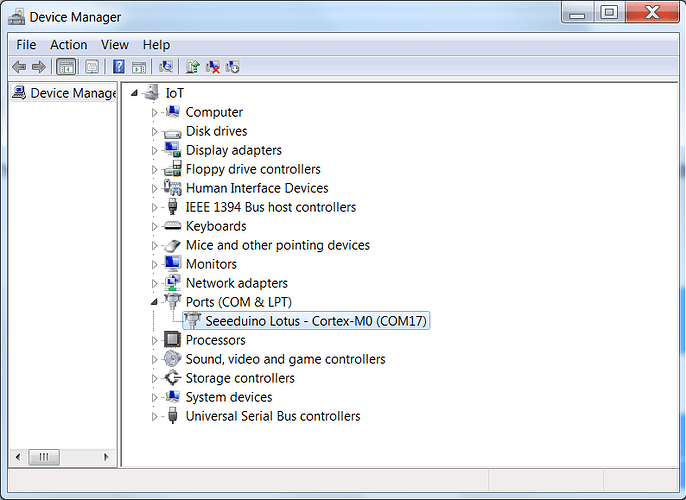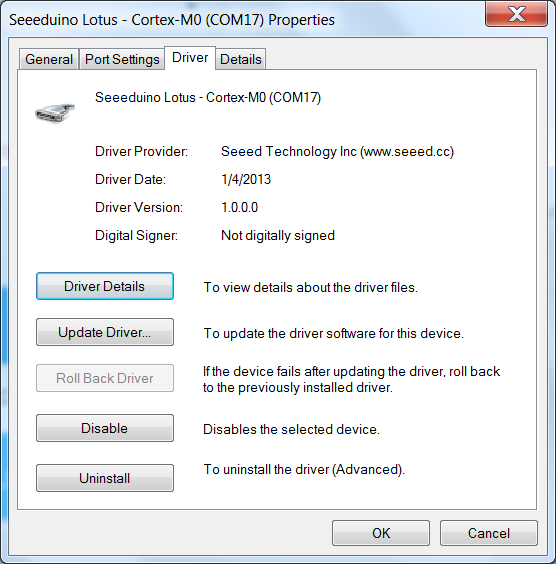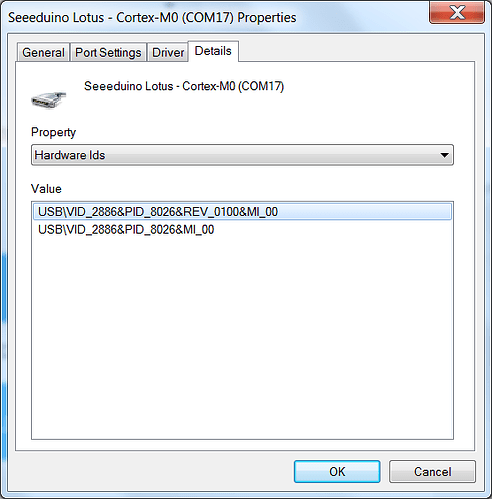While support for Windows 7 from Microsoft has ended, there are still quite a number of people using Windows 7.
We had a drivers issue when trying to use a Lotus Cortex Mo+ board. That issue has been resolved.
SeeedStudio did update the drivers for the Cortex M0_ board but did not update the installer. The PID is 8026 and Windows 7 expects a driver with PID of 8026 before it recognises that driver as being compatible.
Since we cannot non graphic files here you may contact SeeedStudio support to send you the URL or you may contact me directly if you want. Please note the file is a zipped file
Happy New Year of the rat to all
Cheers
Gipsyblues


